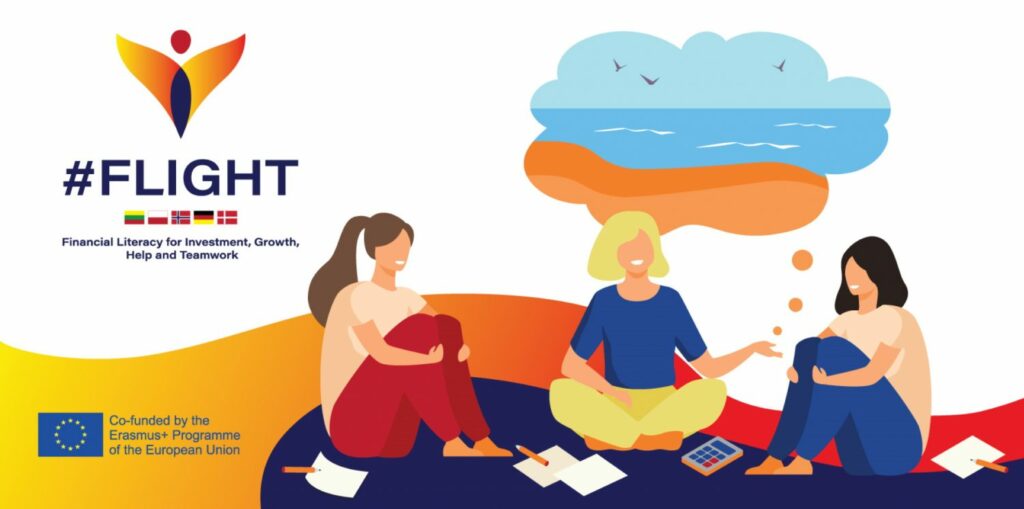If you are an ex-pat living in a foreign country, you probably know the struggle. Opening a bank account, learning about a new tax system, and understanding the rules in a foreign language doesn’t come super easy. And that’s why We Are Entrepreneurs joined a new EU project. Originally posted on the European Commission website EPALE, this article explains the background behind the project focused on making it easier for ex-pat women in Denmark to deal with a new financial system.
Is Financial Literacy a life skill?
The Oxford Languages defines “life skill” as the ability necessary for full participation in everyday life. By that understanding, financial literacy is most certainly a life skill. Originally posted on the European Commission website EPALE, this article explains the background behind a new EU project focused on making financial literacy a life skill.
According to the OECD/INFE International Survey of Adult Financial Literacy Competencies 2016, financial literacy is a skill that needs to be developed in all countries. The term “financial literacy” described the competencies needed to make good and sustainable financial decisions in life. Because “life” is different in each country, the toolbox we acquire to deal with financial situations varies from country to country.
In some countries because of the inability to spread the income until the end of the month, people learn to borrow money, while in other countries they are expected to increase financial resilience by having a budget. In some countries, financial planning is focused more long term where contributions to pension schemes are common practices, while in others the retirement plan is dependent on the support of the younger members of the family.
During the EPALE and Erasmus+ Conference 2022: “Life Skills as a Focus in Adult Education” on the 24th of March (1:00 pm to 5:00 pm), Diana Medrea-Mogensen from We Are Entrepreneurs (Denmark) together with Skaidrė Vainikauskaitė-Tomaševičienė from Versli Mama (Lithuania) presented the #FLIGHT project.

So, if the financial competencies in our toolbox are not very advanced and diverse, to begin with, what happens when we move to another country, and we deal with a new system?
The financial situation of ex-pats is extraordinarily complex. Sometimes they deal with different currencies, they keep bank accounts in their host and home countries to send money home, etc. Technology facilitates this process, luckily, but it is not without cost.
Apart from the actual monetary costs of digital financial services, there are other costs too. Expats have a short-term financial plan that often excludes retirement, investment, or general resilience-building because of the practice of sending money back home. Apart from learning the financial and sometimes legal vocabulary, ex-pats also need to understand these concepts in the local language, accentuating the risk of making costly mistakes.
Five European organizations set to help female ex-pats in their countries teach local financial practices and the language related to them. From their experience with women that manage their families’ finances and that sometimes come from other countries, the FLIGHT project came into life.
Diana and Skaidrė shared the story of Anna – an Eastern European ex-pat in Denmark and asked for participants’ help to establish what financial skills should be established, taught, and recognized as life skills.
The #FLIGHT, Financial Literacy for Investment, Growth, Help and Teamwork project aims to develop digital finance skills of Eastern European female expatriates for their better socio-economic inclusion into host communities, effective self-employment, financial independence as well as sustainable saving and investment patterns in Digital Age.
Follow the progress of the project and read more about the project and partners at https://flight-women.eu/.

Pingback: Women in Arts and Business
Pingback: Lifelong learning in Europe